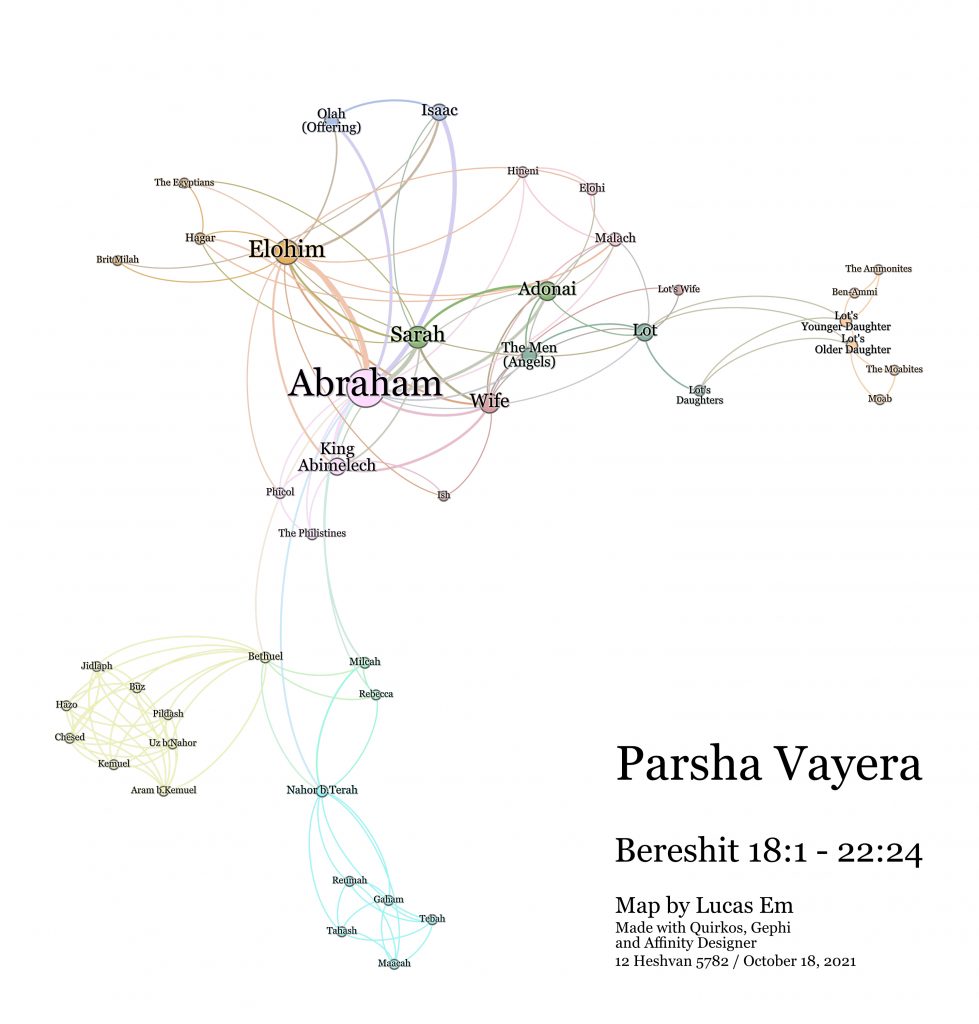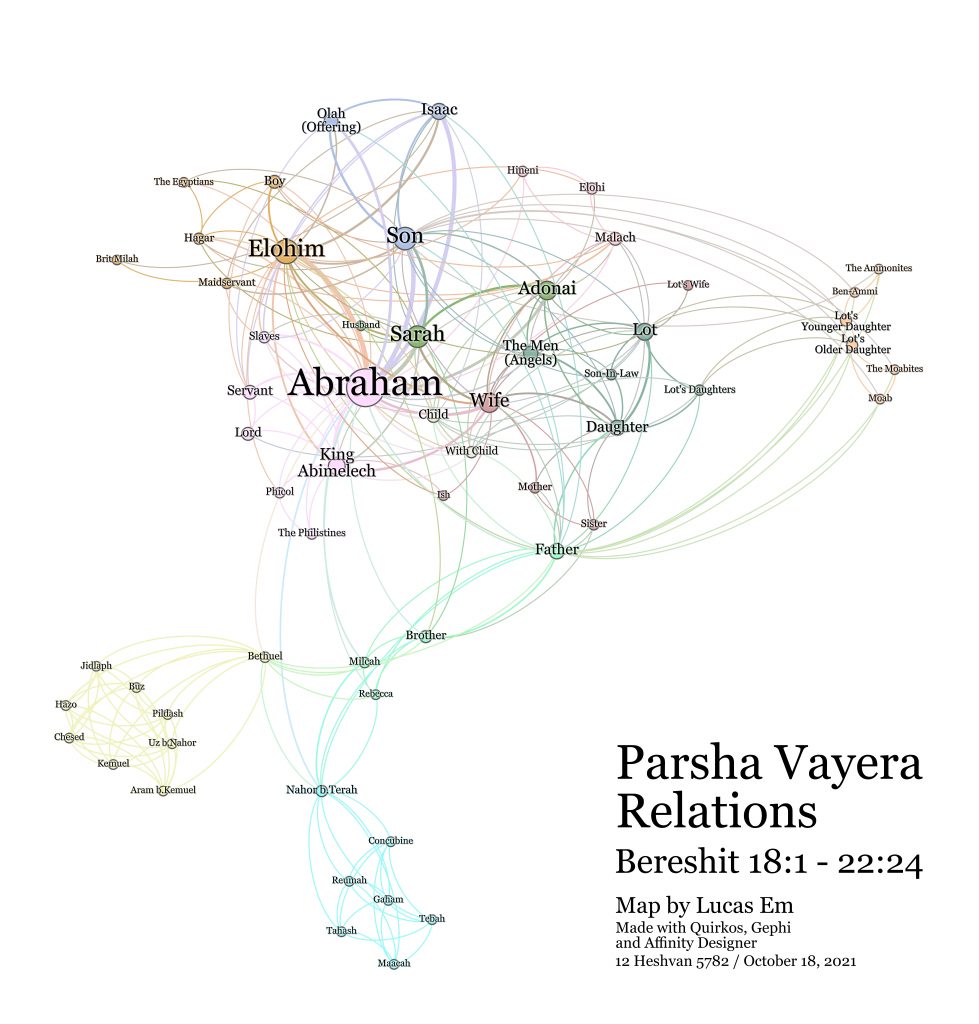Bereshit 18:1 – 22:24
For the full text, go to Parsha Vayera on Sefaria
This week’s Parsha is a big one. Maybe if there is a Top 10 of the Parashot, this one will be in the top 5. Definitely.
It has a story that we all know. And we all struggle to love, if one can say that it could be loved:
The Akedah (also known as The Binding of Isaac).
This is a story that is complicated to understand, to wrap our heads around it. And it is not by far the most difficult story of the week.
This is the story that traumatized me as a child. There was a cartoon on Colombian Public Television (we only had three channels back in the ’80s) that had this Japanese cartoon of two children traveling through the bible stories. And I am still amazed that they made one episode about this one!
Also… Isaac was not a child.. he was about 35-40 when this happen. Can’t remember the exact age, but definitely not a child!
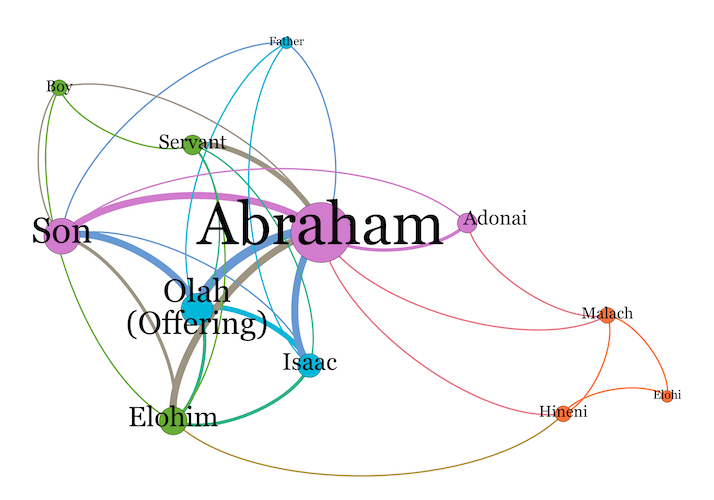
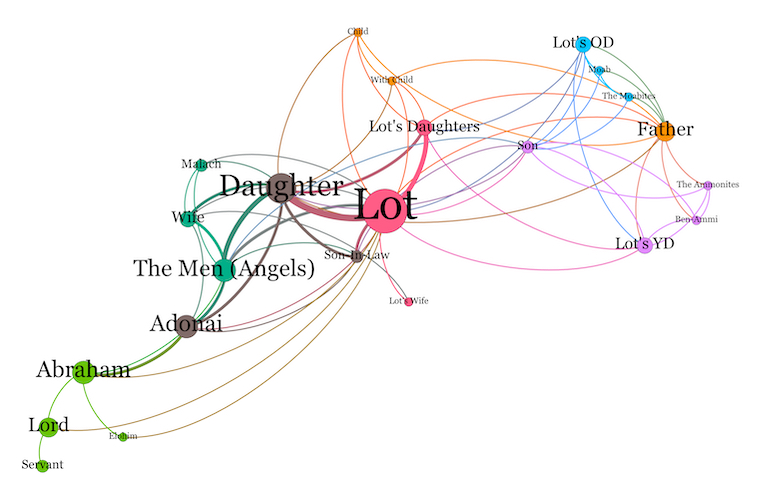
We have Sodom and Gomorra. Which has been used as a tool for hate for so many years (decades? centuries?), completely missing the point of what was happening there!
The most amazing thing of this story is the conversation between Abraham and
Together with this story comes the family drama of Lot, and his daughters. As terrible as it is what they did, they had good intentions – As good as those intentions can be good!
Sarah is the main driver on the A plotline. We start the Parsha with the three men (some say Angels) coming to visit and Abraham offering to them, what I would like to think was the Caananite version of Lasagna:
Bereshit 18:8
וַיִּקַּ֨ח חֶמְאָ֜ה וְחָלָ֗ב וּבֶן־הַבָּקָר֙ אֲשֶׁ֣ר עָשָׂ֔ה וַיִּתֵּ֖ן לִפְנֵיהֶ֑ם וְהֽוּא־עֹמֵ֧ד עֲלֵיהֶ֛ם תַּ֥חַת הָעֵ֖ץ וַיֹּאכֵֽלוּ׃
He took curds and milk and the calf that had been prepared and set these before them, and he waited on them under the tree as they ate.
Here I want to remind you (and inform some of you that might not know) that I can’t have a lasagna. A real lasagna. And I am ok with that.
Abraham was not doing anything wrong. The law (Torah) is still 400+ years away… but the angels knew…
Let that sink for a second… The angels knew that it was not kosher!
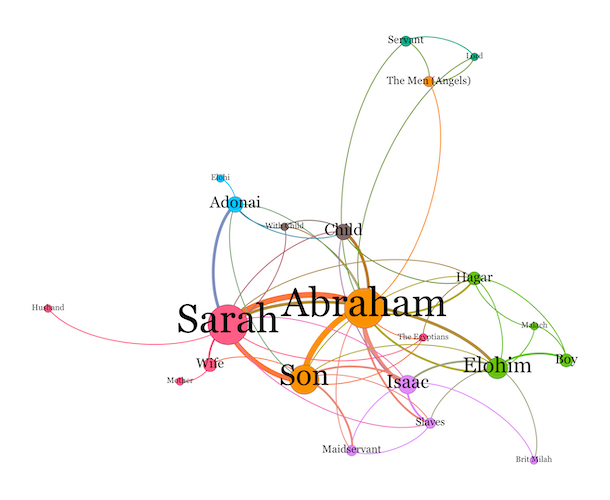
But back to Sarah….
So, the angels told her that she is going to “be with child” and she laughs. And that is why Isaac is called Isaac: Yiṣḥāq (יִצְחָק) , Yitzi for family and friends.
So, she laughs, G-d talks to Abraham, and casually the story goes to a deeper conversation between them about. A sort of game of statistics that at the end Sodom and Gomorra end up loosing.
But the cool thing here, the really interesting point is, and if you are going to take one thing from this story, it is this one: G-d saw Abraham as a partner.
Not someone made on his image (their image?) but rather almost like a partner.
And I really like the idea of G-d talking to himself. And in the third person!
The conversation that follows is priceless. Abraham negotiating with G-d, keeping him in line.
What I don’t get is why here he does it, but when it comes to the Akedah (again, the binding of Isaac) he just goes “Ok… let’s do that”
Bereshit 18:17-19
וַֽיהֹוָ֖ה אָמָ֑ר הַֽמְכַסֶּ֤ה אֲנִי֙ מֵֽאַבְרָהָ֔ם אֲשֶׁ֖ר אֲנִ֥י עֹשֶֽׂה׃
Now the LORD had said, “Shall I hide from Abraham what I am about to do,
וְאַ֨בְרָהָ֔ם הָי֧וֹ יִֽהְיֶ֛ה לְג֥וֹי גָּד֖וֹל וְעָצ֑וּם וְנִ֨בְרְכוּ־ב֔וֹ כֹּ֖ל גּוֹיֵ֥י הָאָֽרֶץ׃
since Abraham is to become a great and populous nation and all the nations of the earth are to bless themselves by him?
כִּ֣י יְדַעְתִּ֗יו לְמַ֩עַן֩ אֲשֶׁ֨ר יְצַוֶּ֜ה אֶת־בָּנָ֤יו וְאֶת־בֵּיתוֹ֙ אַחֲרָ֔יו וְשָֽׁמְרוּ֙ דֶּ֣רֶךְ יְהֹוָ֔ה לַעֲשׂ֥וֹת צְדָקָ֖ה וּמִשְׁפָּ֑ט לְמַ֗עַן הָבִ֤יא יְהֹוָה֙ עַל־אַבְרָהָ֔ם אֵ֥ת אֲשֶׁר־דִּבֶּ֖ר עָלָֽיו׃
For I have singled him out, that he may instruct his children and his posterity to keep the way of the LORD by doing what is just and right, in order that the LORD may bring about for Abraham what He has promised him.”
Here I need to get serious…
The following story is for me the most upsetting one for this week (There are others down the line that are in close competition with this one!).
A story that is often overlooked. A story that really makes my heart ache, even more than the Akedah:
The expulsion of Hagar.
In last week’s Parsha we met Hagar. Sarah’s maidservant.
Sarah thinking that she will never give a son to her husband requested to him to have one wit Hagar. And from this relationship Ishmael was born.
Remember, this book comes from a different time, a different cultures. Also, we will see the “maidservant” as surrogate wife, doing a comeback in a later story.
But once Sarah had a child of her own, she felt threatened, or rather, she thought that the first-born, Ishmael, will be a threat to her own son, so she gets Abraham to expelled Hagar, at her request.
I like to believe that they were good people, and like every human, they had their flaws. But this one is a hard one to accept.
He (Abraham) kicks Hagar out into the desert. To a more than certain death. In fact, we have this line, that every time I read it, it hurts me:
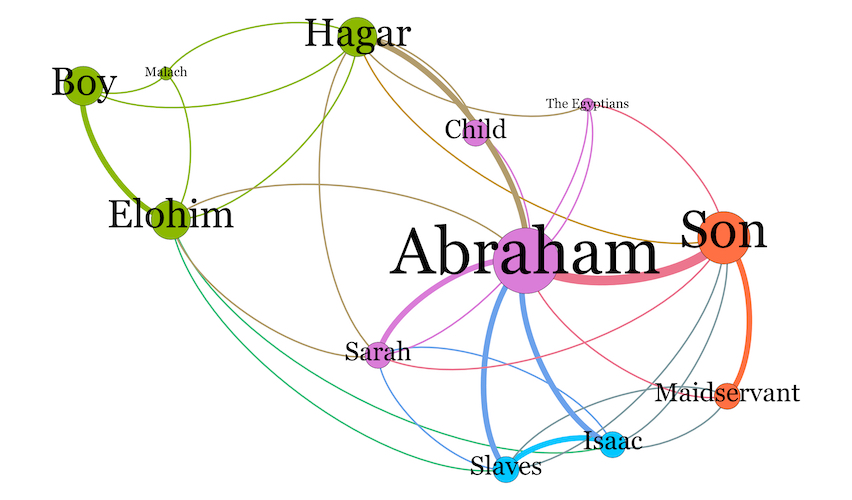
Bereshit 21:15
וַיִּכְל֥וּ הַמַּ֖יִם מִן־הַחֵ֑מֶת וַתַּשְׁלֵ֣ךְ אֶת־הַיֶּ֔לֶד תַּ֖חַת אַחַ֥ד הַשִּׂיחִֽם׃
When the water was gone from the skin, she left the child under one of the bushes,
Bereshit 21:16
וַתֵּ֩לֶךְ֩ וַתֵּ֨שֶׁב לָ֜הּ מִנֶּ֗גֶד הַרְחֵק֙ כִּמְטַחֲוֵ֣י קֶ֔שֶׁת כִּ֣י אָֽמְרָ֔ה אַל־אֶרְאֶ֖ה בְּמ֣וֹת הַיָּ֑לֶד וַתֵּ֣שֶׁב מִנֶּ֔גֶד וַתִּשָּׂ֥א אֶת־קֹלָ֖הּ וַתֵּֽבְךְּ׃
And went and sat down at a distance, a bowshot away; for she thought, “Let me not look on as the child dies.” And sitting thus afar, she burst into tears.
One does not need to have children to feel that pain, that desperation.
And yes, the story has a sort of “happy ending”: an angel/Malach comes to save the day.
But Hagar’s words are painful. Her desparation is too real.
Back to Lucas playing “commentator”
Ok, now into a lighter mood. It is hard to sound funny when the story is about a child dying, a city being destroyed, a son being sacrificed and daughters commitng incest (even if they thought they were doing good!)
But now I can tell you about one of those bible moments that always makes me laugh:
Remember how last week I told you about the whole “My sister My bride” theme?
Well, by popular demand it makes a comeback. And just a heads up… it is a trilogy. And this is just the second part!
This time it happens with Abimelech.
And again Abraham leaves with his wife safe, and richer! And later on, they made a pact, sacrificed some animals and Beer-Sheba got its name… because obviously, it was something about a well.
What is with this book and wells? I like to think of them as the local pub, the (literally) local watering hole!
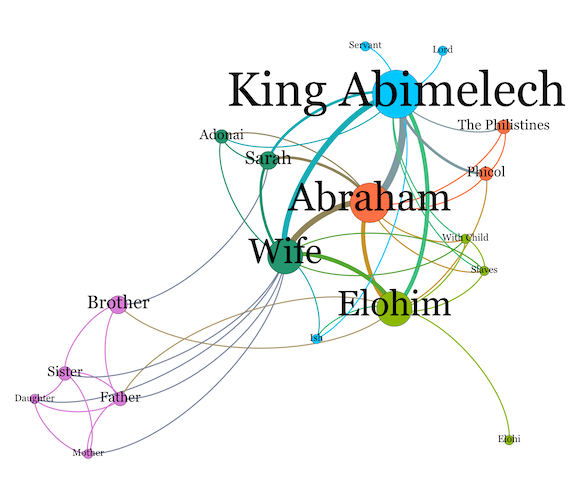
And we are almost done!
The last part is one of those “Amazing Scripture Moments” where you get to find the names to recomend to all your pregnant friends!
We revisit Abraham’s family, his Brother Nahor, his wife Milcah, his concubine Reumah and the rest of the clan, just so we can get to one name… the start of next week’s Parsha, and one of the few – and the first woman on the Torah with some agency – The great, the amazing, the one:
Rebecca – Rivkela for friends and family.

And that’s it. That was this week’s Parsha.
Definitelly part of the Top Ten. Not my favourite, but full of known hits! There is a lot to unpack in this parsha, on each one of the stories.
Ok, and to end this loooong post, I want to share a personal story, something that happened not long ago:
I was talking with a friend the other day, and really proud she told me that she bought a “Bible for Kids” to read to her son.
I am not a father and I have no right to tell her how to raise her son. But the idea of reading the bible to a child just doesn’t seem right to me. It is a book that needs to study and the stories are difficult. They are about the human condition and not children’s stories with “happily ever after” endings.
Now I wonder.. does anyone ever gets an ending like that at all in the books? or even in real life?
So, here are the maps for this week’s Parsha Vayera. As with last week, I am sharing two for now. There are more to come, from each of the stories.
The first one is the Map of the characters (plus a couple of methodological liberties I’ve been taking). The second one is the same map, plus the family/social relationships added.
Hope you find them interesting, and if you are going to study the text this week (not saying that you should… but it might be nice), that they are useful!
And if you got all the way down here, Thank you!
Remember to like and subscribe! and press the bell icon for…. no wait… that’s Youtube…
Just leave a message after the beep!
